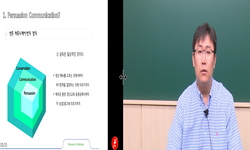기존논문에 따르면 가격인상으로 인한 소비자의 , 부정적 반응을 감소시킬 수 있는 방안 중의 하나는 고객만족을 높이는 것이며, 또 다른 대안의 하나는 가격인상에 대하여 공정성을 지각하...
http://chineseinput.net/에서 pinyin(병음)방식으로 중국어를 변환할 수 있습니다.
변환된 중국어를 복사하여 사용하시면 됩니다.
- 中文 을 입력하시려면 zhongwen을 입력하시고 space를누르시면됩니다.
- 北京 을 입력하시려면 beijing을 입력하시고 space를 누르시면 됩니다.

가격인상이 소비자 반응에 미치는 영향 = The Effects of a Price Increase on Consumer Responses : The Moderating Role of Perceived Reciprocity
한글로보기https://www.riss.kr/link?id=A76322686
- 저자
- 발행기관
- 학술지명
- 권호사항
-
발행연도
2008
-
작성언어
Korean
- 주제어
-
등재정보
KCI등재
-
자료형태
학술저널
-
수록면
99-114(16쪽)
- 제공처
- 소장기관
-
0
상세조회 -
0
다운로드
부가정보
국문 초록 (Abstract)
분석결과, 가격인상 비율은 기존 연구와 동일하게 가격의 인상수준이 높아질수록 레스토랑에 대한 태도는 부정적으로 나타났다. 그리고 레스토랑의 노력이 증가할수록 응답자들은 해당 레스토랑에 대하여 호혜성을 더 높게 지각하여 레스토랑에 대한 태도가 긍정적으로 나타났다. 특히 가격이 인상되더라도 소비자들이 해당 레스토랑의 노력에 대한 호혜성을 높게 지각하는 경우에는 해당 레스토랑에 대한 긍정적 태도가 크게 줄어들지 않는 것을 알 수 있었다. 반면에 호혜성 지각이 낮은 경우에는 가격인상 수준이 높아질수록 해당 레스토랑에 대한 긍정적 태도는 현저하게 줄어드는 것으로 나타났다. 이러한 결과는 호혜성 지각이 가격인상에 대한 부정적 동기를 완화시켜준다는 사실을 제시해준다.
기존논문에 따르면 가격인상으로 인한 소비자의 , 부정적 반응을 감소시킬 수 있는 방안 중의 하나는 고객만족을 높이는 것이며, 또 다른 대안의 하나는 가격인상에 대하여 공정성을 지각하게 하는 것이다. 예를 들어, 물가상승으로 인하여 가격이 인상되는 경우 소비자들은 이를 공정하다고 지각할 가능성이 높기 때문에 이러한 경우에 있어서는 가격인상이 소비자들에게 부정적 반응을 유발시키지 않는다는 것이다. 하지만 본 연구에서는 가격인상에 대한 소비자들의 부정적 반응을 줄여줄 수 있는 새로운 대안으로 호혜성 지각을 제시하고자 한다. 다시 말해서 소비자들이 가격인상으로 인하여 부정적 감정이 유발되더라도, 기업으로부터 혜택을 보거나 감사하는 마음을 지각하게 되면 (호혜성 지각), 가격인상에 대하여 부정적 반응을 보이지 않는다는 것이다.
분석결과, 가격인상 비율은 기존 연구와 동일하게 가격의 인상수준이 높아질수록 레스토랑에 대한 태도는 부정적으로 나타났다. 그리고 레스토랑의 노력이 증가할수록 응답자들은 해당 레스토랑에 대하여 호혜성을 더 높게 지각하여 레스토랑에 대한 태도가 긍정적으로 나타났다. 특히 가격이 인상되더라도 소비자들이 해당 레스토랑의 노력에 대한 호혜성을 높게 지각하는 경우에는 해당 레스토랑에 대한 긍정적 태도가 크게 줄어들지 않는 것을 알 수 있었다. 반면에 호혜성 지각이 낮은 경우에는 가격인상 수준이 높아질수록 해당 레스토랑에 대한 긍정적 태도는 현저하게 줄어드는 것으로 나타났다. 이러한 결과는 호혜성 지각이 가격인상에 대한 부정적 동기를 완화시켜준다는 사실을 제시해준다.
다국어 초록 (Multilingual Abstract)
According to the result, for a larger increase size, participants showed less favorable responses, whereas for a smaller increase size, they responded more favorable responses. But, as perceived reciprocity increase, the negative impact of the magnitude on a price increase is weakened. The results suggest that the level of reciprocity can be influenced the valence of the perceived motive in response to a price increase.
The author suggests that we should consider consumers' perceived reciprocity toward corporate or inferences of motives for a price increases in order to have a complete understanding about the effects of price increases. Finally, we discuss the theoretical and practical implications of the findings, and limitations as well as future research directions.
Most of the previous research on price change have focused on price decreases. But, this study focuses on price increases. Generally, price increases can be often difficult to implement because consumers can generate negative reactions. So, the behavi...
Most of the previous research on price change have focused on price decreases. But, this study focuses on price increases. Generally, price increases can be often difficult to implement because consumers can generate negative reactions. So, the behavioral pricing literatures suggest that one of the possible ways to offset the potential negative effect a price increase is to strive the higher levels of customers' satisfaction, and the other one is that the perceived motive fairness behind a price increase will have an important impact on customers' reactions to a price increase. But, this study investigates the effects of the moderating role of perceived reciprocity on price increases.
According to the result, for a larger increase size, participants showed less favorable responses, whereas for a smaller increase size, they responded more favorable responses. But, as perceived reciprocity increase, the negative impact of the magnitude on a price increase is weakened. The results suggest that the level of reciprocity can be influenced the valence of the perceived motive in response to a price increase.
The author suggests that we should consider consumers' perceived reciprocity toward corporate or inferences of motives for a price increases in order to have a complete understanding about the effects of price increases. Finally, we discuss the theoretical and practical implications of the findings, and limitations as well as future research directions.
목차 (Table of Contents)
- 요약
- Ⅰ. 서론
- Ⅱ. 이론적 배경 및 연구가설
- Ⅲ. 실험
- Ⅳ. 결론
- 요약
- Ⅰ. 서론
- Ⅱ. 이론적 배경 및 연구가설
- Ⅲ. 실험
- Ⅳ. 결론
- 참고문헌
- Abstract
동일학술지(권/호) 다른 논문
-
- 조선대학교 지식경영연구원
- 허정수(Jung-Soo HER)
- 2008
- KCI등재
-
The Investment Size Matter with the Kelly Criterion
- 조선대학교 지식경영연구원
- Gyu-Tai KIM(김규태)
- 2008
- KCI등재
-
- 조선대학교 지식경영연구원
- 김안규(An-Gyu KIM)
- 2008
- KCI등재
-
- 조선대학교 지식경영연구원
- 김기평(Ki-Pyung KIM)
- 2008
- KCI등재




 RISS
RISS DBpia
DBpia







